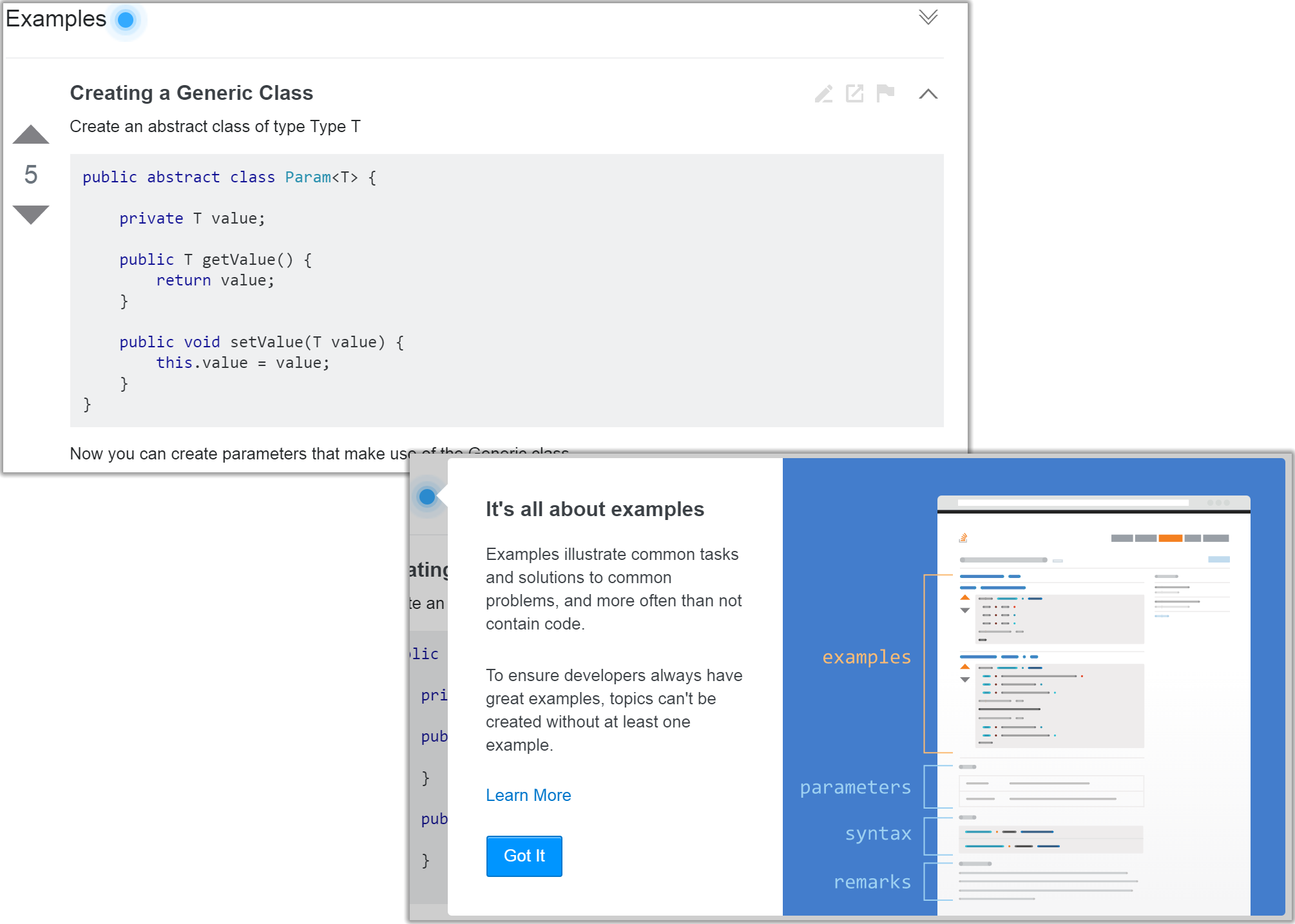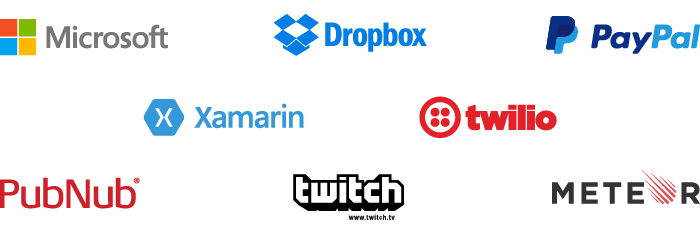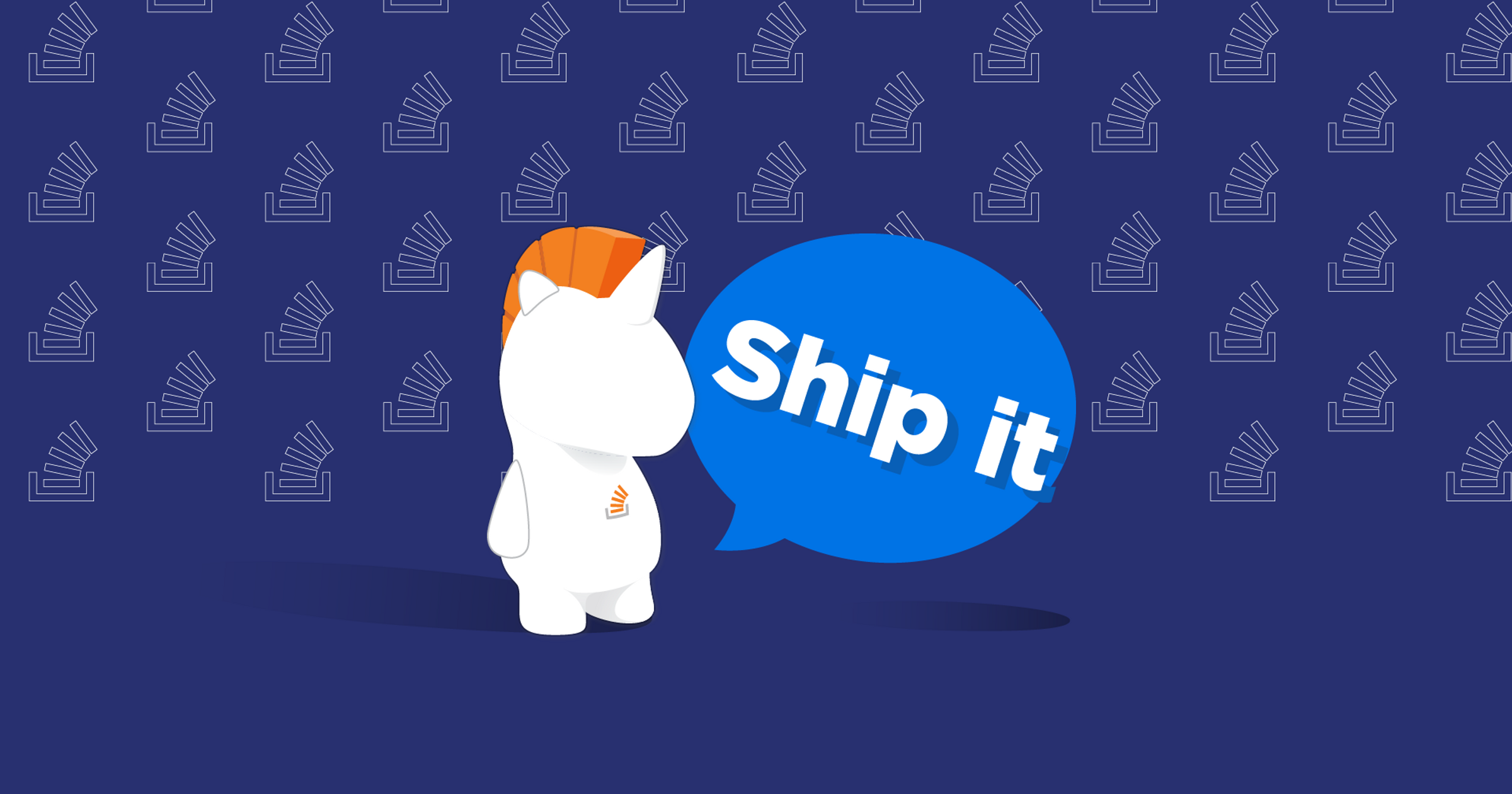Today - thanks to our amazing community beta testers - we're shipping our biggest expansion to Stack Overflow since it first launched: Documentation.
"Together, we believe we can do the same thing for technical documentation that we did for Q&A."
Documentation is community-curated, example-focused developer documentation, based on the principles of Stack Overflow. If you ever wanted to contribute to Stack Overflow but weren't sure you could, now's your chance to give back. Whatever technologies you work with, whatever your experience level, there will never be a time your contribution is more valuable than it is today.
So, why will this be better than how documentation is today, exactly?
Examples, examples, examples - show beats tell. In Stack Overflow Documentation, examples are the star of the show. Anyone can add one, so good topics will eventually have several useful examples. And much like answers on Stack Overflow, the most helpful ones will usually be voted up to be right on top.*

It's need-driven and self-healing. The best, most diligent technical writer out there still can't beat thousands of actual users trying to learn a function or concept while writing real code. They'll determine what topics or examples are needed most. And whenever something fails to explain something clearly, they can ask for it to be improved. It builds on what made Q&A work, but recognizes where it can be better:
- Familiar elements, so you're not starting from scratch. Voting, requesting a topic, adding examples all mirror Q&A elements (voting, asking, answering)
- More emphasis on collaboration, and ensuring most developers can contribute. The more canonical nature of artifacts created means:
- More "shared" ownership of posts and more collaboration
- Small edits and contributions are encouraged
- Everything is reviewed by other helpers, so you can't "break" the page trying to help
- More recognition for more people - More collaboration means more helpers need recognition. And documentation shares a feedback and reputation system with Q&A, so contributions to either earn you reputation and privileges on both.
- Your generosity, your content. All content is covered by the same CC-SA license that SO Q&A always used. And our regular data dumps will now include Documentation content.
- "Be Nice" still applies. We know that occasionally some folks can get a little prickly, but this is who we still are:
Whether you've come to ask questions, or to generously share what you know, remember that we're all here to learn, together. Be welcoming and patient, especially with those who may not know everything you do. Oh, and bring your sense of humor. Just in case.
So, why does Documentation belong on Stack Overflow, exactly?
Go back and read Jeff's original introduction of Stack Overflow, you'll find this pitch:
[Stack Overflow] is by programmers, for programmers, with the ultimate intent of collectively increasing the sum total of good programming knowledge in the world. No matter what programming language you use, or what operating system you call home. Better programming is our goal.
(emphasis mine) This was a great starting place, but over the years we've made tweaks as we've learned from the community - both from direct feedback on Meta and from observing how people use Stack Overflow. We learned that our Q&A works best when you've got a real problem, specific to the code in front of you. By coming to terms with that, and tweaking Stack Overflow accordingly, we've become much better at Q&A but have left some programming knowledge out in the cold. Documentation gives a home to a lot of this good content that has been turned away, or very hard to "get right" in the Q&A format. Namely, the canonical, general reference, instructional content. Once word got out Stack Overflow was expanding, the developers responsible for some of our favorite tech got a little excited. The Meta community got first dibs with the private beta, but now that Documentation is live on Stack Overflow I'm pleased to announce developers from: <partner pics!>

</partner pics!> will be participating in Documentation right alongside the community. They'll be watching to see what kind of great examples and documentation are created to inform their own work and help answer or clarify anything that needs it. They're Stack Overflow users like everyone else, we're all working together (to help developers everywhere), so you could see your change reviewed by a Microsoft-y or find a request from a Dropbox-er.
Ready to help?
Whether you've been posting on Q&A for years, or have always wanted to give back if you could, now's your chance. Docs today resembles Stack Overflow Q&A was right when it launched - there's a lot of white space to fill in, and plenty of chances to "actually write the book on" your favorite tech. Oh, and since we really want to use this launch to expand the Stack Overflow Community tent, we've got some silly/shiny fun to encourage folks to jump right in! All users who contribute to Documentation the next four weeks:
- Will get a silver "Documentation Pioneer" badge
- Will be entered in a drawing to win one of 100 Stack Overflow T-Shirts
Let's go build this thing together.
- Browse Documentation
- Take the tour
- Jump in and handle (or make!) requests for
We literally almost called this "Stack Overflow Examples", but then we thought about having to constantly explain that it serves the same purpose as 'Documentation' used to, but we didn't call it that because the important part* of documentation is the Examples, which are central to our thing. So we stuck with the term folks know.
